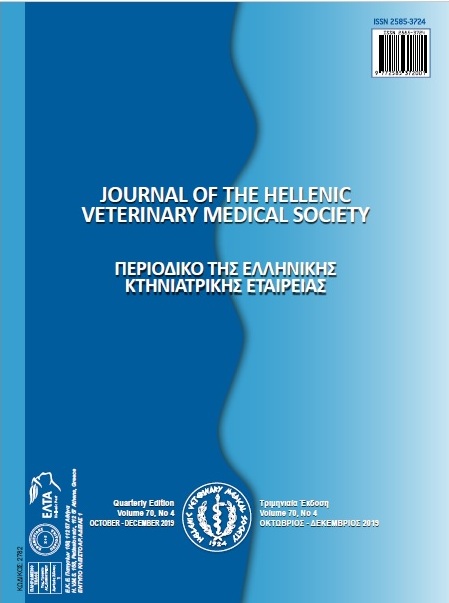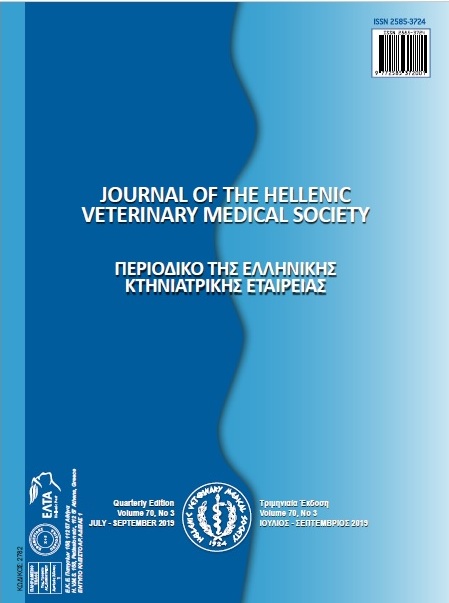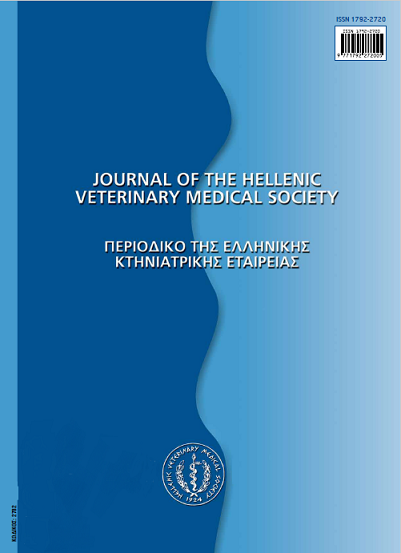Trans-diaphragmatic pressure measurement as a prognostic factor in the Intensive Care Unit in dogs
Résumé
In the last decade, attempts to improve the quality of the services provided to the critically ill patients in the Intensive Care Unit (ICU) are of great interest in human medicine. The aim of the majority of the clinical studies is the correlation of the survival rate of a critically ill patient with specific prognostic factors at the time of admission. The detailed assessment of a patient at admission in the ICU and during hospitalization seems to affect the management and the outcome. The main aim of this study was to evaluate if the trans-diaphragmatic pressure measurement can be a prognostic factor of the outcome in the ICU in dogs. Thirty-one dogs, 21 male and 10 female was included in this prospective, cohort study. Age, breed, sex, body weight and clinical diagnosis were recorded. The type of admission, the mentation status, physiological and biochemical parameters were measured at the admission of the dog in the ICU. All the variables were assessed over the first 24 hours following ICU admission. The animals were allocated into six
groups: peritonitis/intra-abdominal surgery, intra-thoracic surgery, respiratory disease, neurologic disease, neoplasia, and systematic disease. The trans-diaphragmatic pressure (Pdi) was measured under the same anesthetic level in all animals with two oesophageal balloon catheters. The most frequent problem for admission in ICU was peritonitis (5/31). Seventeen out of 31 were admitted in acute status while 14/31 had a chronic problem. Mean±standard deviation of Pdi was 10.7±5.6 mmHg and of lactate concentration 2.3±1.2 mmol/L. Both, they can predict outcome (p=0.071 and p=0.076, respectively). Seven out of 31 dogs died, 2 were euthanized and 22 were discharged from the ICU after hospitalization. The technique of Pdi measurement with balloon catheters can be successfully applied in dogs in the ICU. Pdi measurement, as well as lactate concentration may be used as prognostic indicators for the outcome, in dogs in the ICU. However, a bigger sample size is need to support these findings.
Article Details
- Comment citer
-
PAVLIDOU, K., & SAVVAS, I. (2020). Trans-diaphragmatic pressure measurement as a prognostic factor in the Intensive Care Unit in dogs. Journal of the Hellenic Veterinary Medical Society, 70(4), 1851–1858. https://doi.org/10.12681/jhvms.22235
- Numéro
- Vol. 70 No 4 (2019)
- Rubrique
- Research Articles

Ce travail est disponible sous licence Creative Commons Attribution - Pas d’Utilisation Commerciale 4.0 International.
Authors who publish with this journal agree to the following terms:
· Authors retain copyright and grant the journal right of first publication with the work simultaneously licensed under a Creative Commons Attribution Non-Commercial License that allows others to share the work with an acknowledgement of the work's authorship and initial publication in this journal.
· Authors are able to enter into separate, additional contractual arrangements for the non-exclusive distribution of the journal's published version of the work (e.g. post it to an institutional repository or publish it in a book), with an acknowledgement of its initial publication in this journal.
· Authors are permitted and encouraged to post their work online (preferably in institutional repositories or on their website) prior to and during the submission process, as it can lead to productive exchanges, as well as earlier and greater citation of published work.





